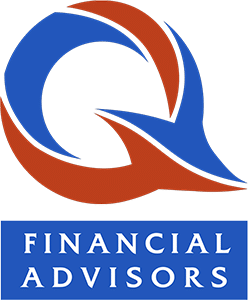As a banking or finance executive, you’ve spent years advising clients on their financial futures. But when it comes to your own retirement, the process can be just as complex.
Making the right financial decisions now will ensure a secure, tax-efficient, and rewarding retirement.
The below blog acts as a guide, outlining the key considerations for executives in the banking and finance sector, helping you prepare for a smooth transition into retirement.
Define Your Retirement Goals
Before diving into financial planning, take time to define what retirement looks like for you.
Understand the answers for the following questions:
- Do I want to stop working completely, or would I prefer part-time consulting or board roles?
- What lifestyle do I want – travel, hobbies, or family time?
- What financial security will I need to maintain my desired standard of living?
Being clear on these questions will help shape your pension and investment strategies.
Main Considerations for Retirement Planning
1. Understanding Your Income and Expenses
To retire comfortably, you need a clear view of your expected income and expenses.
- Estimate Your Costs: Consider everyday expenses, travel plans, healthcare, and long-term care.
- Assess Your Income Sources: Pensions, savings, investments, rental income, and potential part-time work.
- Optimise for Tax Efficiency: Plan your withdrawals wisely to minimise tax while maximising income.
2. Investment and Risk Management
As retirement approaches, managing risk in your investment portfolio is crucial.
- Diversify Investments: Ensure a mix of equities, bonds, property, and cash savings to balance risk.
- Review Your Risk Tolerance: Shift towards lower-risk investments while keeping growth potential.
- Use Tax-Efficient Strategies: Take advantage of tax reliefs available for pensions and investments in Ireland.
3. Maximising Your Pension Benefits
Most executives will have multiple pension pots, such as:
- Executive Pension Plans – Employer-sponsored schemes with tax benefits.
- PRSA (Personal Retirement Savings Account) – Flexible, portable, and tax-efficient.
- ARF (Approved Retirement Fund) – Allows you to keep your pension invested post-retirement while withdrawing funds as needed.
- State Pension – Check your entitlement and factor it into your income planning.
Making the most of your pension contributions and ensuring you choose the right drawdown strategy will help maximise your income while minimising tax liabilities.
Contact Q Financial Advisors Now for a free consultation and start building a pension plan that works for you.
4. Planning for Healthcare and Wellbeing
Healthcare costs can be one of the biggest expenses in retirement. It’s important to:
- Have a solid healthcare plan to cover medical expenses.
- Consider private health insurance if you are used to employer-sponsored plans.
- Invest in a healthy lifestyle to maintain independence and reduce medical costs.
Plan Your Retirement with Q Financial
At Q Financial, we specialise in retirement planning for high-earning professionals, including banking and finance executives.
Our expert advisors will help you:
- Maximise your pension and investment returns
- Create a tax-efficient income strategy
- Ensure your retirement lifestyle is financially secure
📞 Talk to our experts today!
Book a Free Consultation to start planning a secure and fulfilling retirement.







